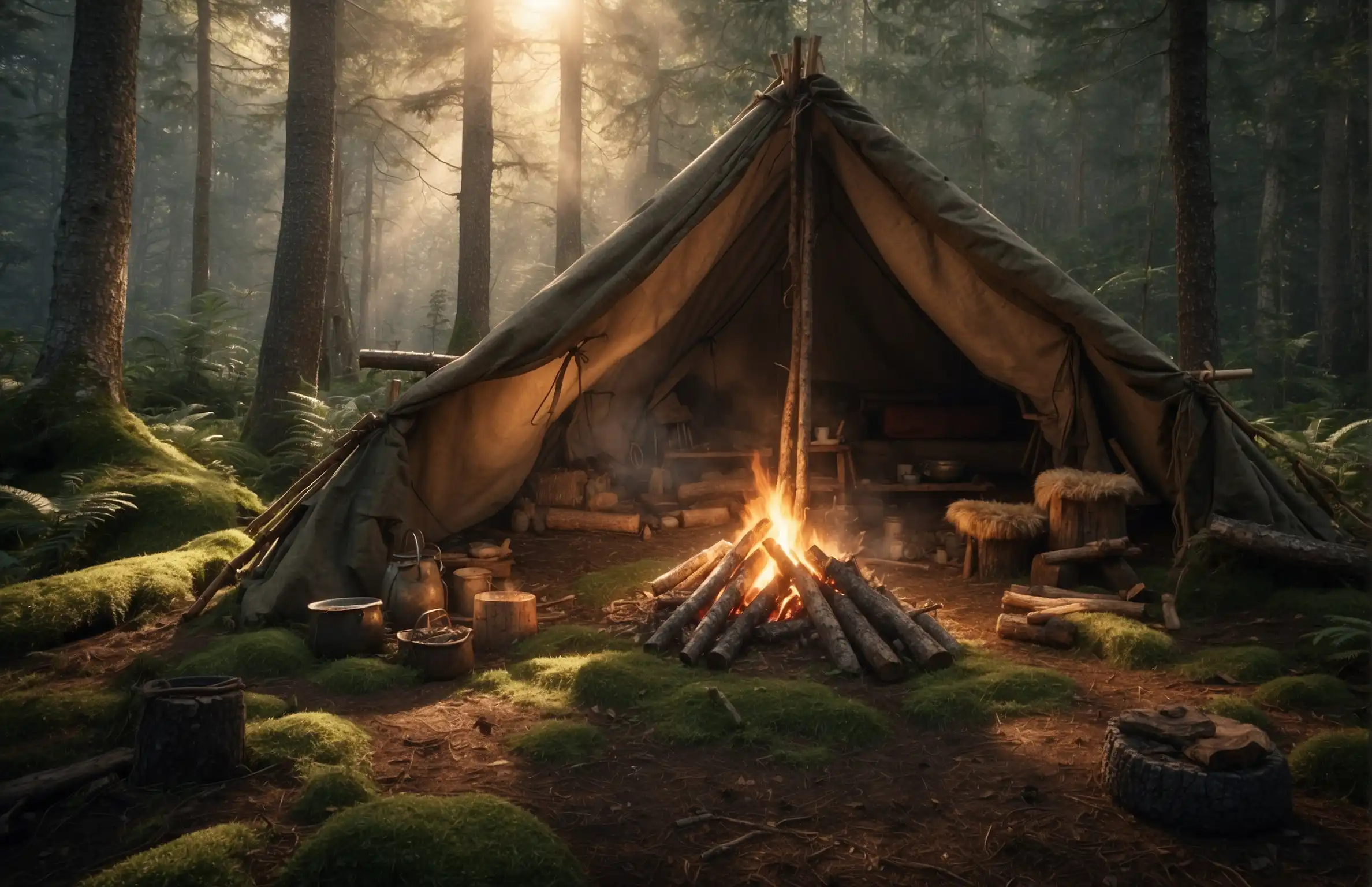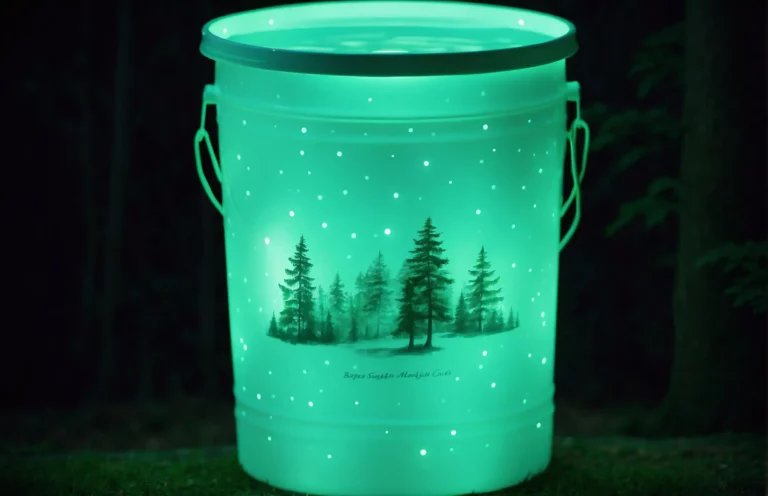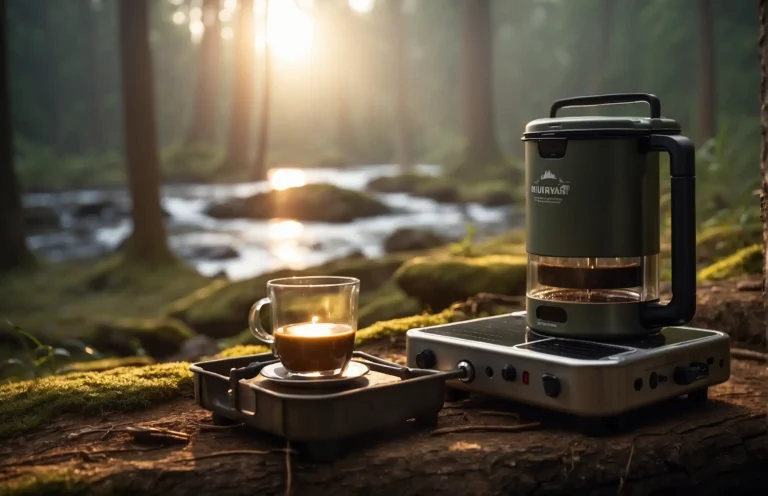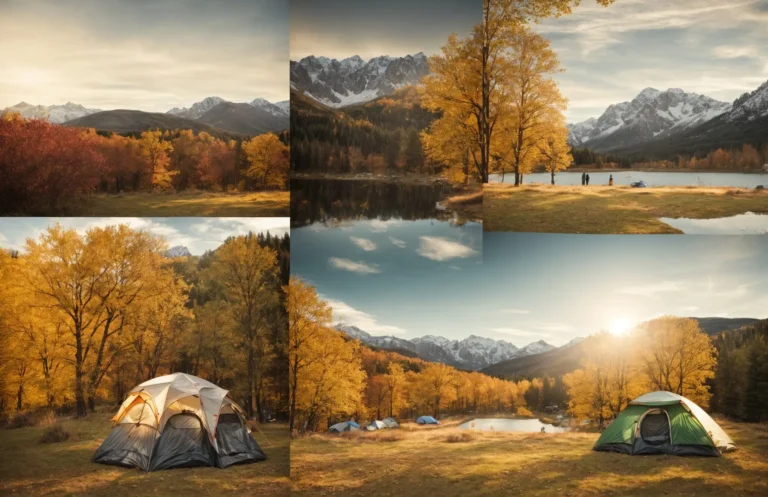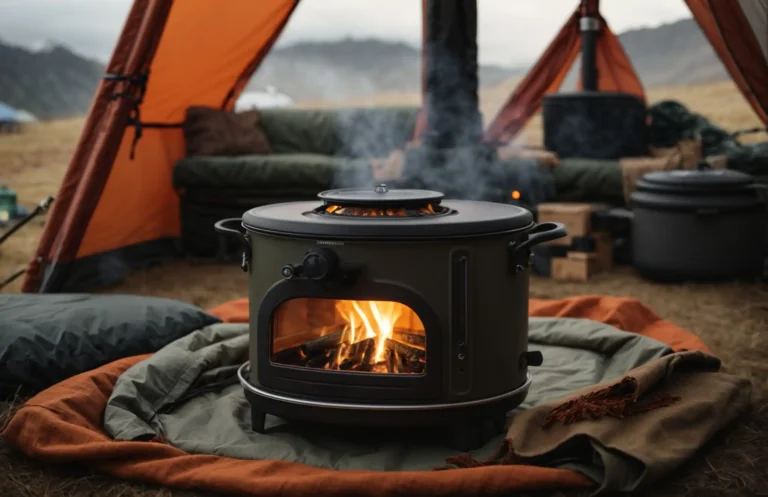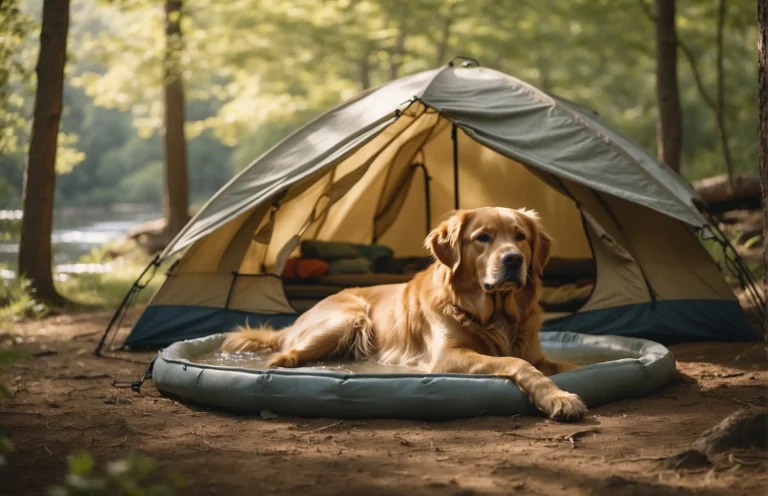What is Bushcraft Camping: A Complete Overview
Bushcraft camping is an outdoor activity that emphasizes survival skills and self-sufficiency. It focuses on natural resource utilization and traditional living techniques.
Bushcraft camping provides a unique experience for nature enthusiasts wanting to enhance their wilderness skills. Participants learn to thrive in natural settings using minimal modern equipment, relying instead on tools like knives, axes, and fire-starters. This type of camping encourages a deeper connection with the environment through activities like foraging, tracking, shelter-building, and fire-making without modern conveniences.
Ideal for those seeking a challenge, bushcraft camping teaches practical skills that improve self-reliance and outdoor knowledge. This immersive experience appeals to adventurers eager to learn and apply ancient ways of living in harmony with nature.
Understanding Bushcraft Camping
Bushcraft camping, an adventure that beckons the wild at heart, is a unique way to embrace nature. Unlike a typical camping trip that might include modern conveniences, bushcraft camping is all about relying on the skills of living with nature, using tools and knowledge to survive and thrive in the natural environment. It’s a journey back to basics, where the focus is on traditional outdoor skills and self-sufficiency. Delve into the world of bushcraft camping and discover its essence, history, and the philosophy that continues to draw outdoor enthusiasts to this ancient practice.
Definition of Bushcraft Camping
Bushcraft camping is an outdoor activity that involves living in the wilderness and managing with the resources available in nature. Participants of bushcraft camping engage in a range of activities such as building shelters, foraging for food, creating fires without matches, and crafting tools and utensils from natural materials. The essence of the experience lies in education and adaptation, learning to become a part of the environment rather than imposing upon it.
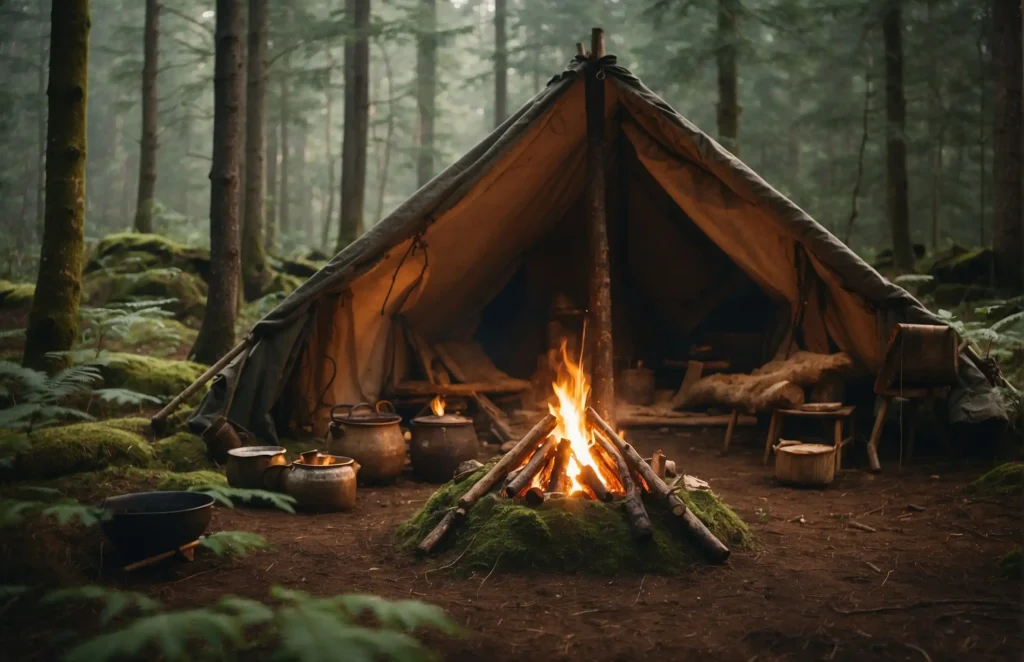
Historical Roots of Bushcraft
The term bushcraft originated from skills used in the bushlands of Australia but has since become synonymous with survival techniques in any natural environment. The historical roots of bushcraft trace back to indigenous cultures around the world, where the ability to harness the land’s resources was essential for survival. These ancestral skills have been passed down, honed, and tailored by various societies throughout the ages, embodying the connection between humans and the earth.
The Philosophy Behind Bushcraft Camping
The philosophy behind bushcraft camping revolves around sustainability, respect for nature, and personal growth. It encourages an understanding and appreciation of the natural world, reinforcing the idea that humans are not separate from nature, but deeply interwoven with it. By practicing bushcraft camping, individuals learn resilience, resourcefulness, and a sense of stewardship for the environment, all while experiencing the sheer beauty and simplicity of life outdoors.
Essential Skills For Bushcraft Camping
Bushcraft camping is an incredible way to immerse yourself in the wilderness, relying on skills handed down through generations to interact with nature in a sustainable and self-sufficient manner. Unlike traditional camping, bushcraft teaches you to work with the environment to meet your basic needs. Here are critical skills every bushcraft camper should hone to ensure a safe and rewarding outdoor experience.
Firecraft: Mastering Fire Making
Creating a flame is a cornerstone of outdoor survival and comfort. Successful firecraft involves more than just sparking a flame. It encompasses finding the right materials, preparing the fire lay, maintaining the fire, and adhering to vital safety practices.
- Identifying dry materials for kindling and tinder
- Using various ignition methods like flint and steel, ferro rods, or friction-based techniques
- Understanding fire structures for weather conditions and purposes such as warmth, cooking, or signaling
Shelter Building Techniques
Shelter protects you from the elements and can be the difference between a comfortable sleep and a night spent shivering. Using natural materials and the environment to your advantage is key. Learning the types of shelters, from lean-tos to debris huts, and when to utilize each provides the knowledge to construct effective protection anywhere.
- Assessing location for hazards and resources
- Structuring supports using branches and saplings
- Insulating with leaves, grass or snow to retain heat
Foraging and Hunting For Sustenance
Nurturing the ability to find and secure food is essential. Familiarize yourself with local plant life to identify edible flora while avoiding harmful varieties. Bushcraft camping often includes tracking and trapping techniques, ensuring sustainable approaches to wildlife consumption.
- Plant identification and seasonal availability
- Trapping fundamentals and ethical practices
- Preparation of foraged or hunted food with minimal waste
Water Sourcing And Purification
Access to clean water is a matter of survival. Learning how to locate water sources, and more importantly, making water safe for consumption is a critical skill set for any bushcraft enthusiast.
- Recognizing signs of water in nature
- Methods of water purification such as boiling, chemical treatment, or solar disinfection
- Techniques to collect rainwater or dew
Tool Use and Craftsmanship
Effective use of tools not only aids in tasks like building and hunting but also fosters a deeper connection with the environment. Developing craftsmanship with tools like knives, axes, and saws—and the meticulous care of these implements—reflects the true spirit of bushcraft.
| Tool Type | Uses in Bushcraft | Maintenance Tips |
|---|---|---|
| Knife | Carving, skinning, food prep | Regular sharpening, oiling to prevent rust |
| Axe | Chopping wood, shaping shelter components | Handle inspection, blade care, proper storage |
| Saw | Cutting branches and firewood | Cleaning teeth, avoiding damp storage |
Preparing For a Bushcraft Camping Trip
Bushcraft camping transports adventurers back to the roots of wilderness survival, merging ancient skills with modern ingenuity. Embarking on such a journey not only tests one’s resilience but also requires meticulous preparation to ensure a harmonious encounter with nature. From selecting a prime spot in the wilds to packing only what will serve you, preparation is paramount. Let’s explore the essentials for setting up a successful bushcraft camping trip.
Choosing the Right Location
Finding the ideal location is critical for an immersive bushcraft experience. Consider a place away from the hustle of everyday life, yet within a safe distance from emergency services. Research the area’s flora and fauna, weather conditions, water sources, and any potential hazards. Look for a site with a natural shelter like an overhang or a soft forest floor for setting up a camp. Always check local regulations to ensure your chosen spot permits bushcraft camping and follow Leave No Trace principles to minimize your environmental impact.
Packing the Essentials: A Bushcraft Gear Checklist
- Sharp knife: A versatile tool for carving, chopping, and other tasks.
- Fire starting kit: Includes waterproof matches, ferro rod, and tinder.
- Shelter: A tarp, hammock, or materials to build a natural shelter.
- Cooking supplies: A lightweight pot or pan and utensils.
- Water purification: A filter or chemical treatment drops.
- First-Aid kit: Packed with essentials to address minor injuries.
- Navigation tools: A compass and map or a reliable GPS device.
- Cordage: Paracord or natural fibers for multiple uses.
- Appropriate clothing: Adapted to the weather and environment.
Keep your gear minimal and multipurpose, aiming for a lightweight pack that’s manageable over long distances and diverse terrains. Your skills are as vital as your gear, so brush up on knot tying, shelter building, and navigation before heading out.
Safety Measures and Risk Assessment
Your safety is paramount. Before you set out, inform someone of your itinerary and expected return time. Understanding potential dangers, from wildlife encounters to sudden weather changes, is crucial. Always have a plan B for unexpected situations. Equip yourself with a sturdy knife, know your plant and animal life to avoid poisonous or dangerous species, and have a first-aid kit close at hand. Learning basic first-aid and CPR is advisable. Finally, ensure you have a means of communication in case of an emergency, whether it’s a whistle, a mirror for signaling, or a fully charged satellite phone.
Environmental Impact and Ethics
Embracing the wild through bushcraft camping brings you closer to nature and underlines the importance of preserving our natural environment. Practitioners of bushcraft have a responsibility to consider their environmental impact and adhere to ethical practices. This commitment ensures that the wilderness they enjoy remains unspoiled for future generations. In this context, ethical bushcraft suggests an awareness of how we interact with our surroundings, striving for harmony and sustainability. Let’s delve into the practices that minimize our footprint and uphold the leave-no-trace ethos.
Minimizing Your Footprint in Nature
Minimizing the ecological footprint while bushcraft camping is crucial for protecting wildlife habitats and maintaining the natural beauty of the outdoors. To achieve this, campers should:
- Use natural materials sensibly and sparingly, avoiding damage to live trees and plants.
- Choose camp sites with care, opting for areas that have been used before to prevent further land degradation.
- Be mindful of fire, by using existing fire pits and keeping flames small to avoid forest fires and unnecessary scarring of the land.
Sustainable Bushcraft Practices
Sustainability in bushcraft is about interacting with nature in a way that can be maintained indefinitely. Campers should practice the following:
- Gathering resources such as wood, water, and wild edibles in a manner that does not deplete the local ecosystem.
- Harvesting resources ethically, considering the long-term health of the wilderness.
- Reusing and repurposing materials rather than relying on single-use items that create waste.
Leave No Trace Principles
Bushcraft camping embraces the Leave No Trace principles to conserve the environment:
| Principle | Application |
|---|---|
| Plan Ahead and Prepare | Research the area and its regulations; prepare for extreme weather, hazards, and emergencies. |
| Travel and Camp on Durable Surfaces | Stick to trails and camp at established sites to avoid damaging pristine environments. |
| Dispose of Waste Properly | Pack out all trash, leftover food, and litter to prevent pollution and disturbances to wildlife. |
| Leave What You Find | Preserve the wilderness by avoiding the collection of natural objects and not altering sites. |
| Minimize Campfire Impacts | Use fuel stoves or established fire rings, keeping fires small. Make sure fire is completely extinguished. |
| Respect Wildlife | Observe wildlife from a distance, and never feed animals which can damage their health. |
| Be Considerate of Other Visitors | Maintain quiet, yield to other users on the trail, and keep group sizes small to lessen the impact. |
Know more: What is Hot Tent Camping
Learning and Community
Bushcraft camping represents a unique approach to embracing the outdoors, where survival skills meet the appreciation of nature. It’s a world where knowledge is currency, and the community is a vibrant hub for exchange. In this close-knit culture, enthusiasts of all levels come together to learn, teach, and celebrate the age-old techniques of living in harmony with nature. The journey of a bushcraft camper is continuous, and the community aspect is integral to its progression.
Finding and Joining Bushcraft Groups and Gatherings
Finding like-minded individuals to connect with can greatly enhance your bushcraft experience. Bushcraft groups offer a sense of belonging and provide a platform for sharing techniques and organizing events. Here’s how you can find a tribe:
- Search for local bushcraft groups on social media platforms like Facebook or Meetup.
- Check out forums and websites dedicated to bushcraft and survival skills.
- Attend bushcraft workshops or outdoor festivals to meet enthusiasts in person.
Educational Resources For Bushcraft Skills
Embarking on your bushcraft journey requires the right resources to gain essential skills. Beginners and seasoned campers alike can benefit from a wide range of educational materials:
| Type of Resource | Description | Example Platforms |
|---|---|---|
| Books | Comprehensive guides covering survival techniques and the natural environment. | ‘Bushcraft 101’ by Dave Canterbury |
| Videos | Visual demonstrations of skills such as fire-starting, shelter-building, and tool usage. | YouTube channels like Survival Lilly |
| Online Courses | Structured learning experiences with modules on various aspects of bushcraft. | Udemy, Coursera |
Sharing Knowledge: Mentorship in the Bushcraft Community
In the bushcraft community, sharing knowledge is a cornerstone. Experienced practitioners often take on a mentorship role, guiding newcomers through the complexities of bushcraft camping. Mentorship can involve:
- One-on-one instruction in specific skill areas.
- Group workshops, where more advanced bushcrafters lead sessions on a range of topics.
- Informal discussions and advice sharing around the campfire.
This exchange of wisdom not only strengthens individual skills but also fortifies the community’s collective knowledge.
Also learn: How Old Do You Have to Be to Go Camping
Conclusion
Bushcraft camping is an immersion into nature’s raw beauty. It sharpens survival skills and enhances outdoor wisdom. Embrace this adventure, be prepared, and respect the wilderness. Start small, stay safe, and remember: bushcraft is about harmony with nature.
Your adventure companion, Outdoor Awaits, brings you the best in camping knowledge in our Learning section.

